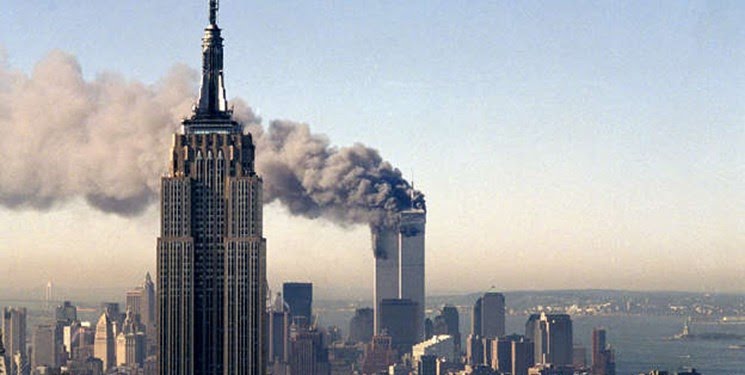How did the events of 9/11 mark the decline of the United States?
In an analysis, a British newspaper examines the role of 9/11 in the evolution of American society and the decline of its position in the world.
According to the International Group of News News, a British newspaper in an analysis on the occasion of the twentieth anniversary of 9/11 has examined the role of this incident in shaping the evolution of American society.
In an analysis published Friday, the Guardian examines how the events of 9/11 plunged the United States into the abyss of eternal war, the collapse of human rights values, and civil unrest.
The Guardian begins this article by Julian Burger, recalling that recent US drone strikes on positions in Somalia and Afghanistan were carried out under the authority given to the US President after the 9/11 attacks.
“The aftermath of 9/11 can be seen everywhere,” writes the Guardian. The families of some 3,000 victims are still at loggerheads with the Ministry of Justice to uncover secrets related to the AFBI investigation into the attacks and the possible role of Saudi officials. “Last week, they asked the inspector general of the ministry to investigate AFBI allegations that some vital evidence, including images and videos, had been lost.”
As the United States approaches the twentieth anniversary of 9/11, it is clear that the issue is not just about history. “More than a decade after al-Qaeda’s latest attempt to attack the United States, Washington’s response to the incident a few weeks after the collapse of the Twin Towers has shaped and eroded American society and democracy,” it said.
The British newspaper further referred to the passage of the so-called “authorization to use military force” law, which was passed by Congress after 9/11.
The purpose of the law, which was passed on September 18, 2001, was to give the President of the United States the necessary combat authority to carry out military action without the permission of Congress.
The Guardian writes that the Biden government still uses this legal infrastructure to justify military operations around the world against individuals and groups not affiliated with al-Qaeda.
Barbara Lee was the only member of Congress to oppose the law that year. “Let ‘s wait a minute and think about the consequences of our actions today so that we do not lose control,” he warned at the time. “At the same time that we want to act, we must not become the evil we denounce.”
The Guardian writes that in the 20 years since 9/11, the law has been used more than 40 times to justify military operations in 18 countries. These operations were against those who had nothing to do with 9/11 and al-Qaeda. And these are just operations that have not been hidden and have been reported.
Just days after the law was passed, the George W. Bush administration introduced the “Patriot Bill.” The law gave the FBI and other organizations a wide range of powers to collect records of telephone conversations of suspected terrorist acts. The bill passed without members of Congress even having a chance to read it.
Later, in January 2002, Guantanamo Bay was opened to house terrorism suspects in a detention center outside the United States. And finally, the last revolutionary event after 9/11 was the creation of the Ministry of Internal Security.
Spencer Ackerman, author of Territory of Terror: How 9/11 Destabilized America and Produced Trump, argues that US actions after 9/11 led to the institutionalization of white supremacism throughout American political history.









